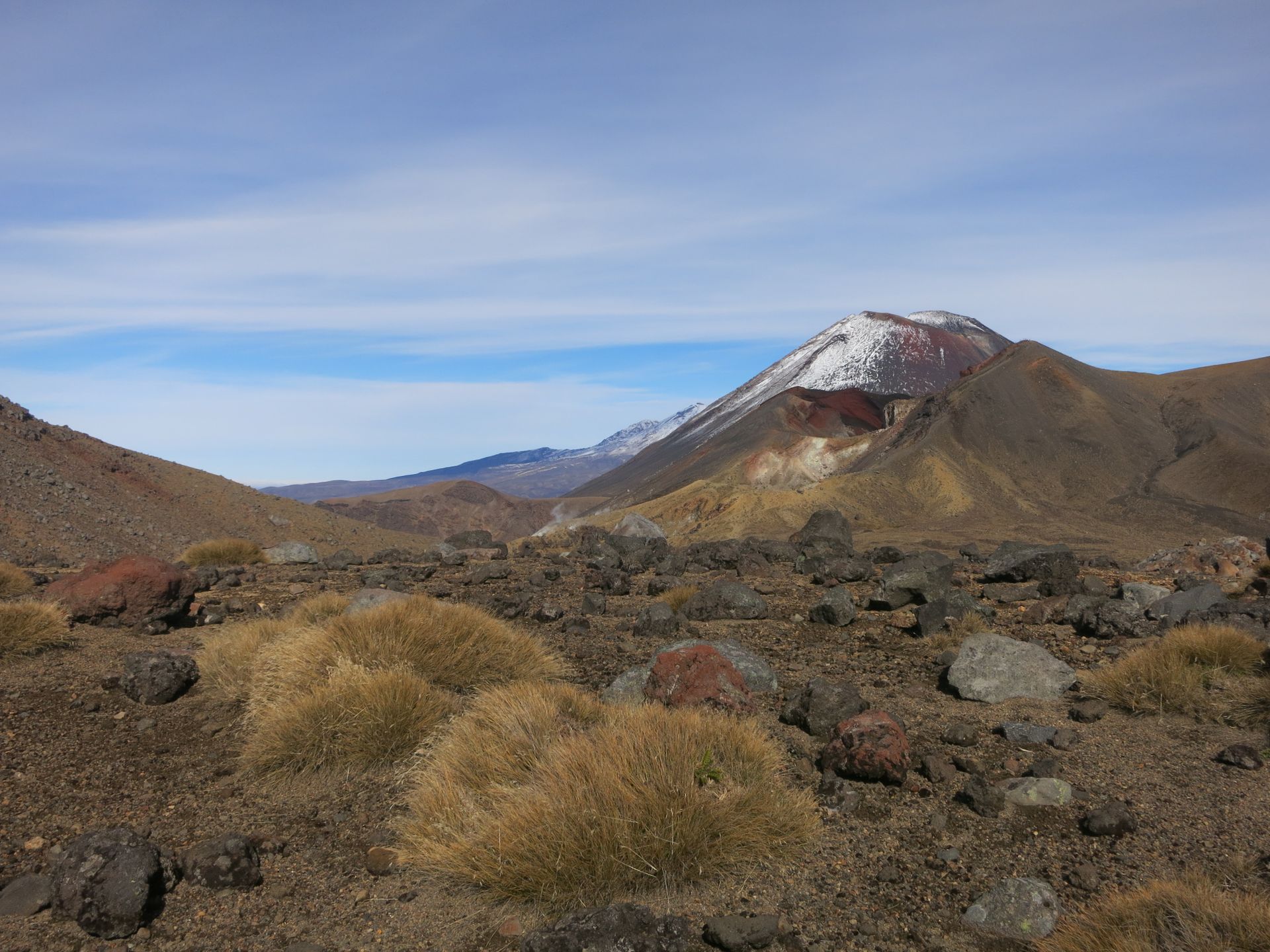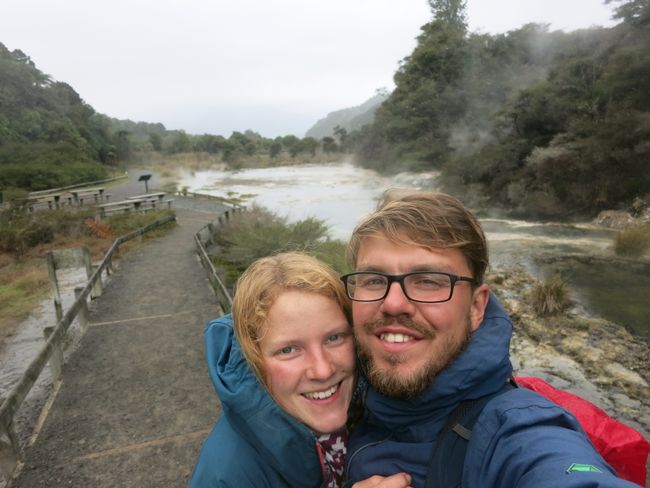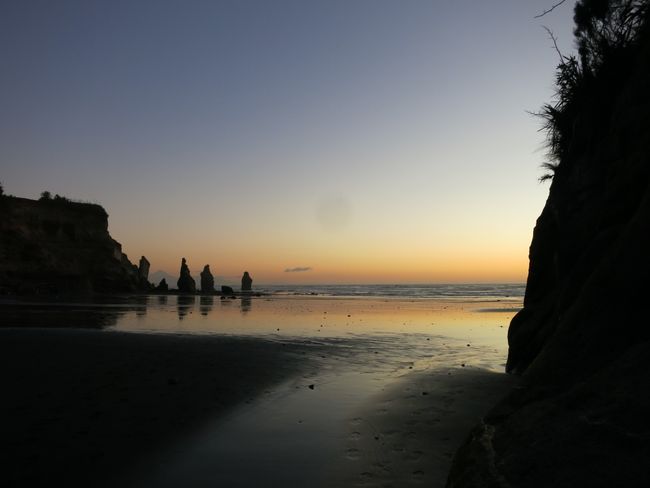Lost World - Forgotten World
بڵاوکراوەتەوە: 31.01.2020
سەبسکرایبی هەواڵنامە بکەن
We left New Plymouth and Tim took the opportunity to fish in the surrounding waters. We lost track of time and only set off for our next campsite in the dark. The app described it as remote and unspectacular. But it feels strange to arrive at the overnight location in the dark without getting a sense of the surroundings. According to the navigation system, we were almost there when we spotted a warning sign on the side of the road. It said something like 'Caution: Fence in 200 meters'. We were puzzled. Why was there a warning about a fence and what awaited us this time...??? After a few more minutes of driving, we stood in front of a huge gate and the mystery unraveled itself. We were standing in front of a nature reserve, which was enclosed by a gigantic fence to provide a natural habitat for kiwis without predators. We rolled down the car window to press the button to open the gate. We passed through the gate and found ourselves in a lock. This is to ensure that opossums and other predators cannot enter. We really felt like we were in a movie. You can imagine it like Jurassic Park, a unique experience. After passing through the second gate, we found ourselves in the Rotokare Scenic Reserve Trust. A paved road led us through a dense forest. We had to drive slowly because a kiwi could cross the road at any moment. That's why Caro was particularly nervous - maybe we will be lucky enough to see a kiwi in the 'wild'...
The road led to a lake where camping was allowed. We got out of the car to get a rough overview of the area. We immediately realized that we were in a special place. There were many bird sounds, including the kiwi, to be heard. We even ventured a bit into the forest, but Caro found it too spooky for a proper night walk. Just before going to sleep, we opened the windows again and listened to the sounds of nature - simply unique.
The next day, we started a discovery tour through the reserve. In an information room, we gathered a lot of information about the formation, tasks, goals, and achievements of the park. Its inhabitants and hiking trails were also presented. Of course, we opted for the long route because we were curious! We first climbed many steps, always right next to the fence.
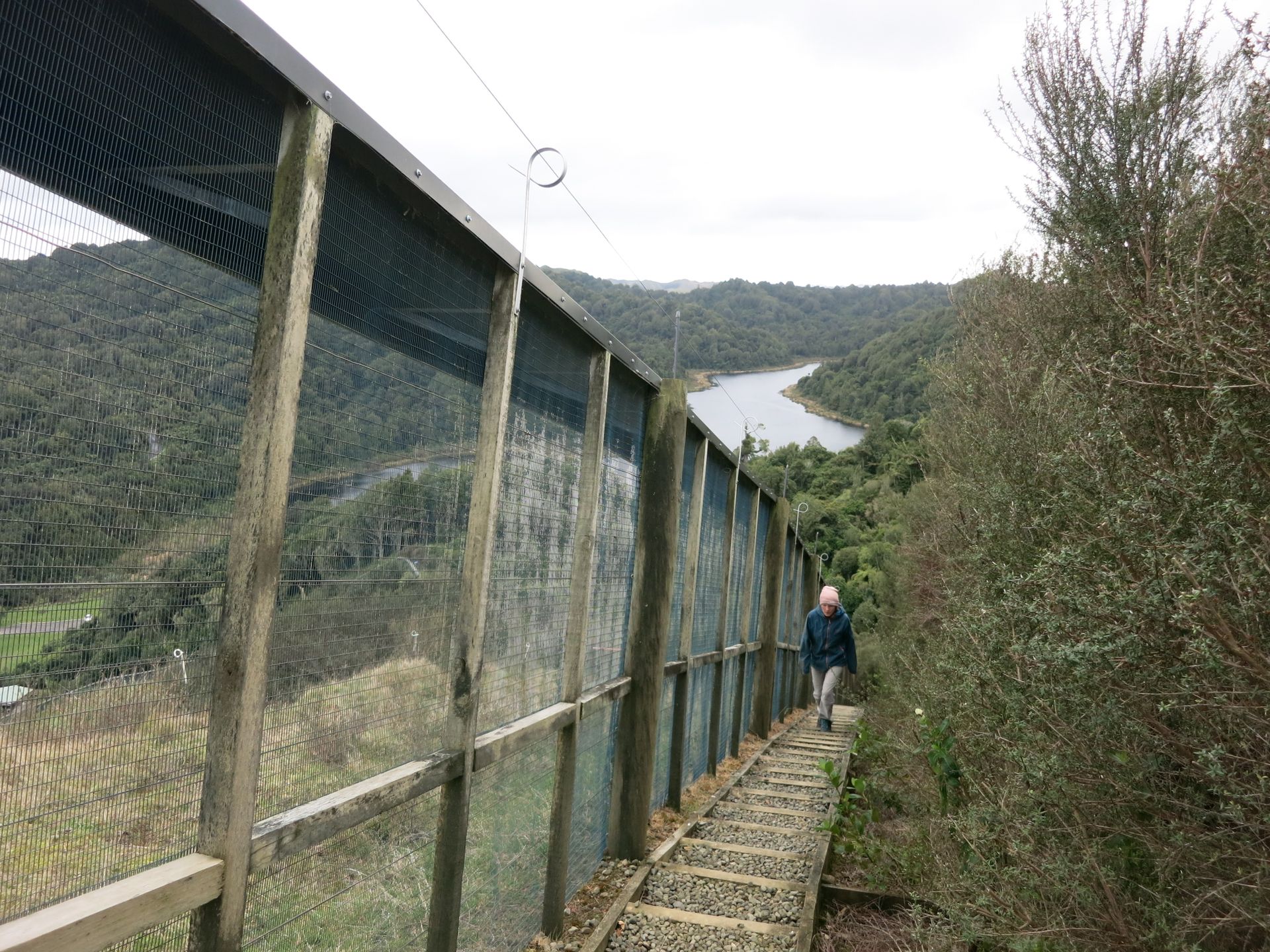
Along the way, we encountered small information boards, and it was really impressive how gigantic and massive the fence was built. Tim was, of course, faster than me and suddenly I saw him pick something up from the ground... 'Caro, look, I think it's a kiwi feather.' I still remember it today and I was very excited about this find. It is structured completely differently from normal feathers, and if you want to see it someday, just ask me. With the strong wind, I quickly stuffed the feather into our camera bag. I definitely want to take this memory with me to Germany and I was so happy that if we can't see the bird, at least we have a real, wild feather from it.
We reached a high point from where we could see almost the entire 230-hectare park. It's impressive how the 8.2-kilometer-long fence surrounds this piece of nature...
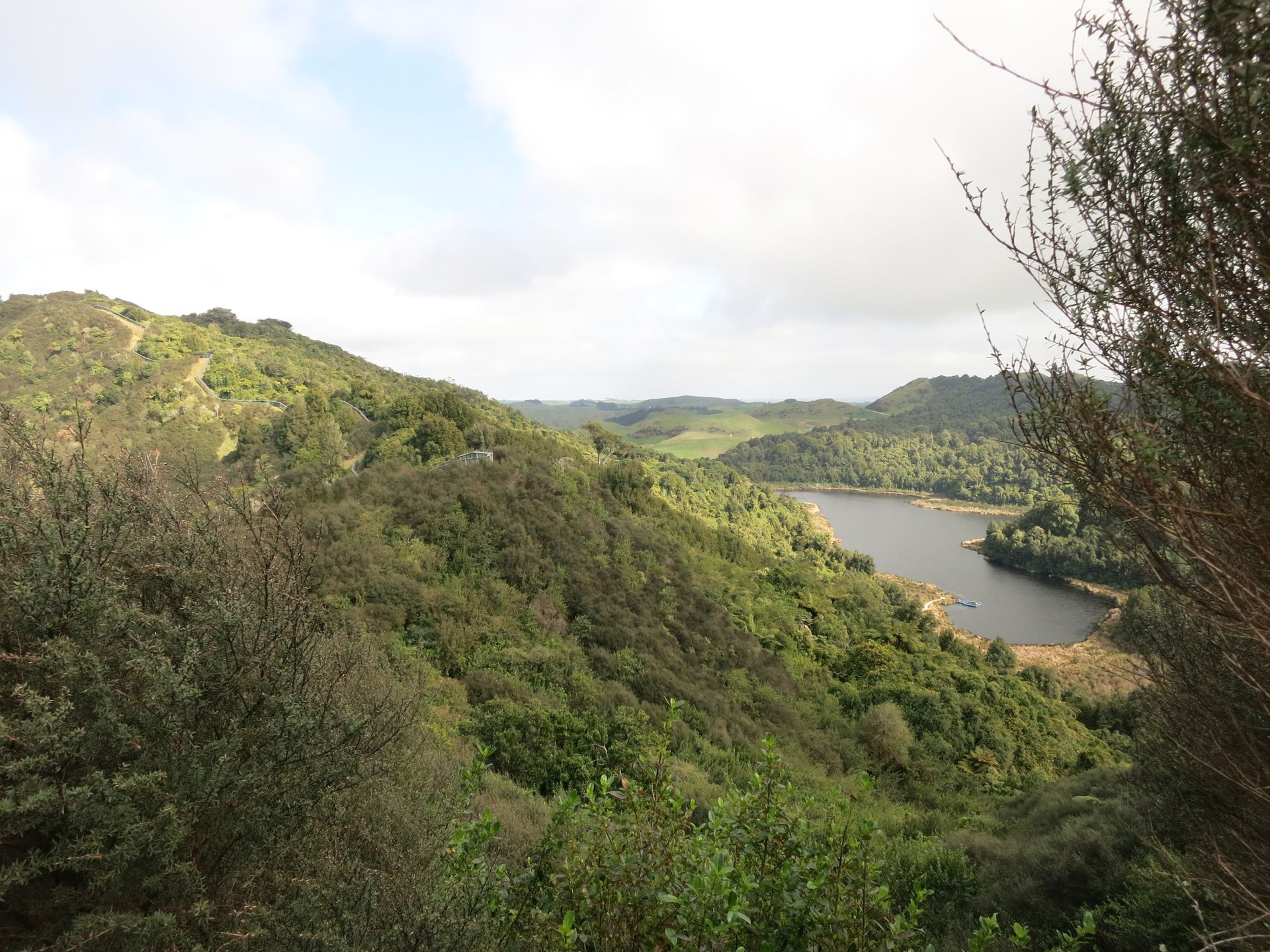
The hike was really something special. We discovered so many bird species we had never seen before and probably also a few kiwi burrows...
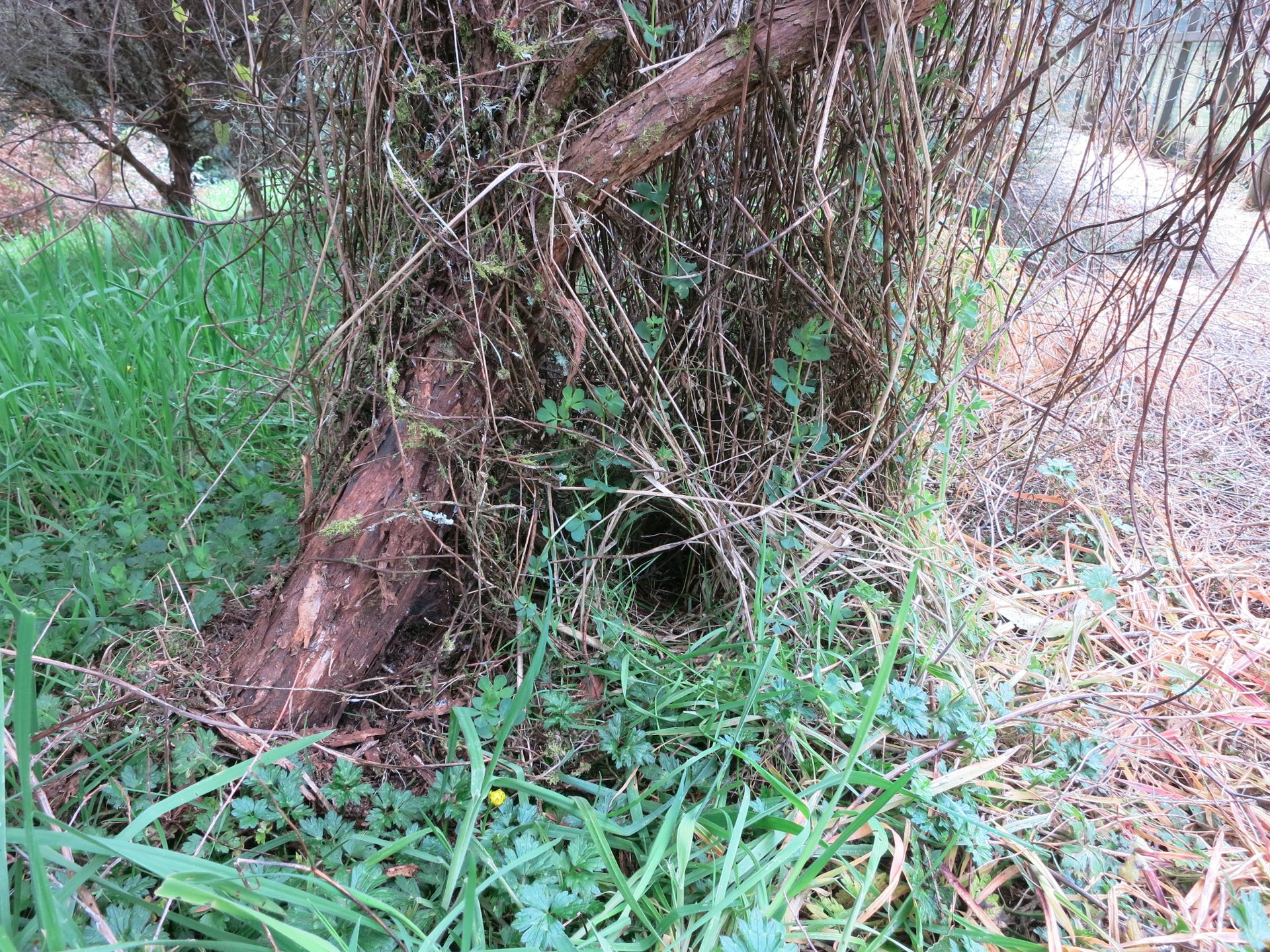
In the afternoon, we continued our journey. We passed Mt. Taranaki once again, and lo and behold...
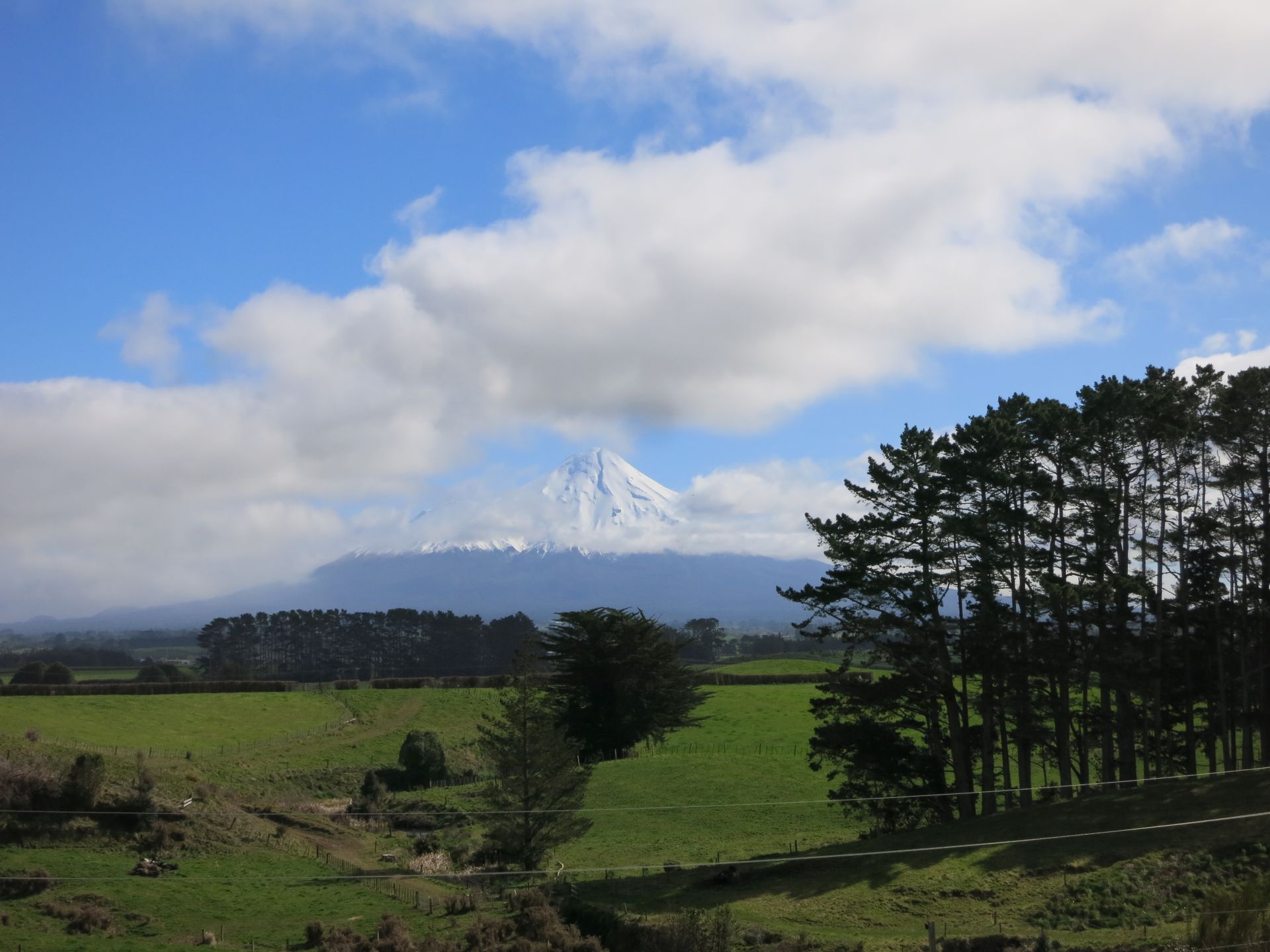
We turned onto the Forgotten World Highway... because anyone can drive on a 'normal highway'! As the name suggests, it is a rather rural and secluded route, with some sections that are not even paved. With our speedy Odhi Alrounder, we had no problem, we told ourselves. So, we got in and embarked on the adventure, fully fueled (because there are no gas stations on the 155 km long route).
The landscape was once again unique: limestone canyons, lush green hills, enchanting waterfalls, and mysterious narrow tunnels, occasionally a stray cow or goat on the winding road, small clusters of houses, and even a pub with freshly tapped beer, which we enjoyed on the veranda in the sunshine. It felt like a separate, secluded country, where we still felt very comfortable because few tourists venture here.
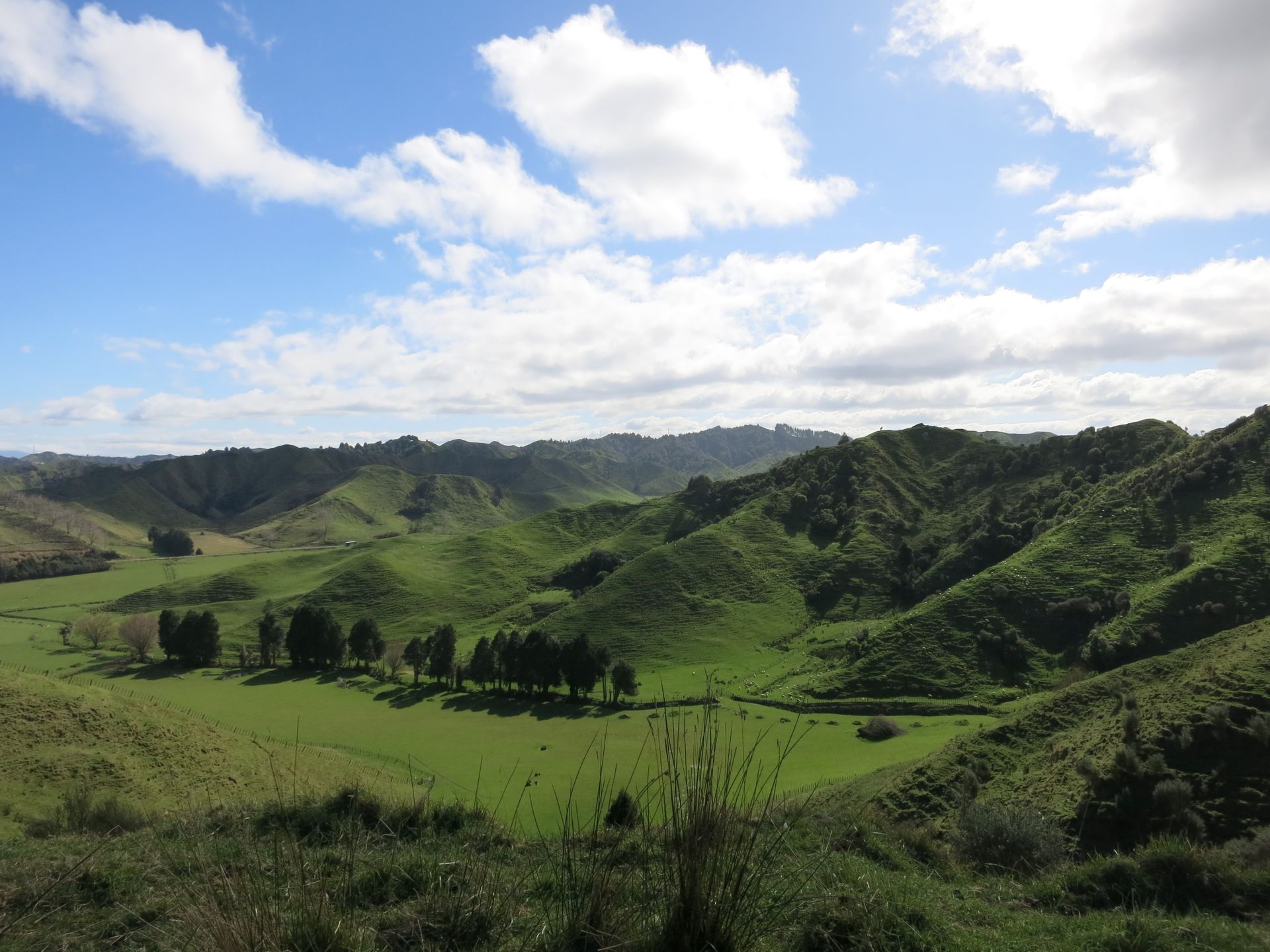
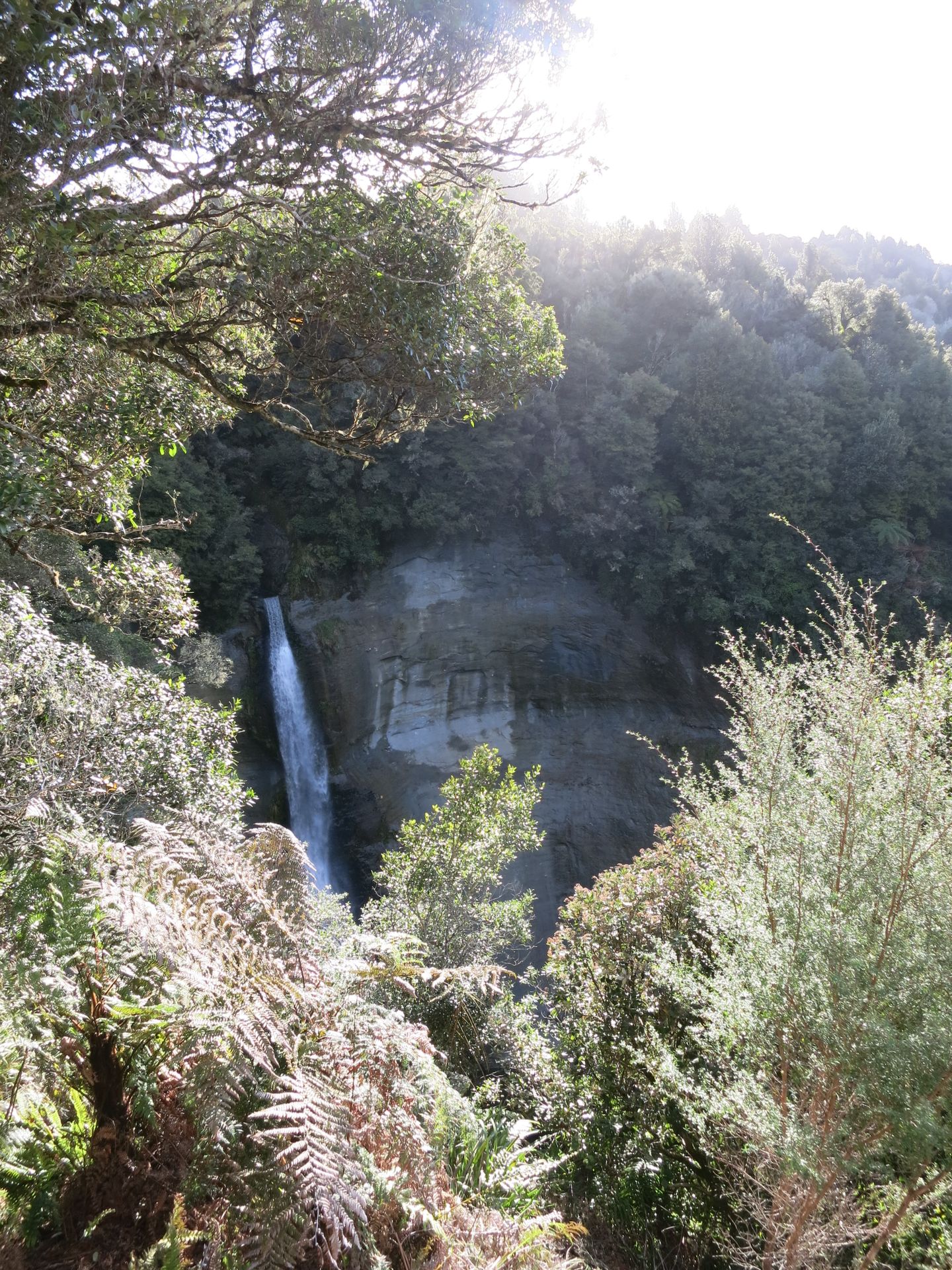
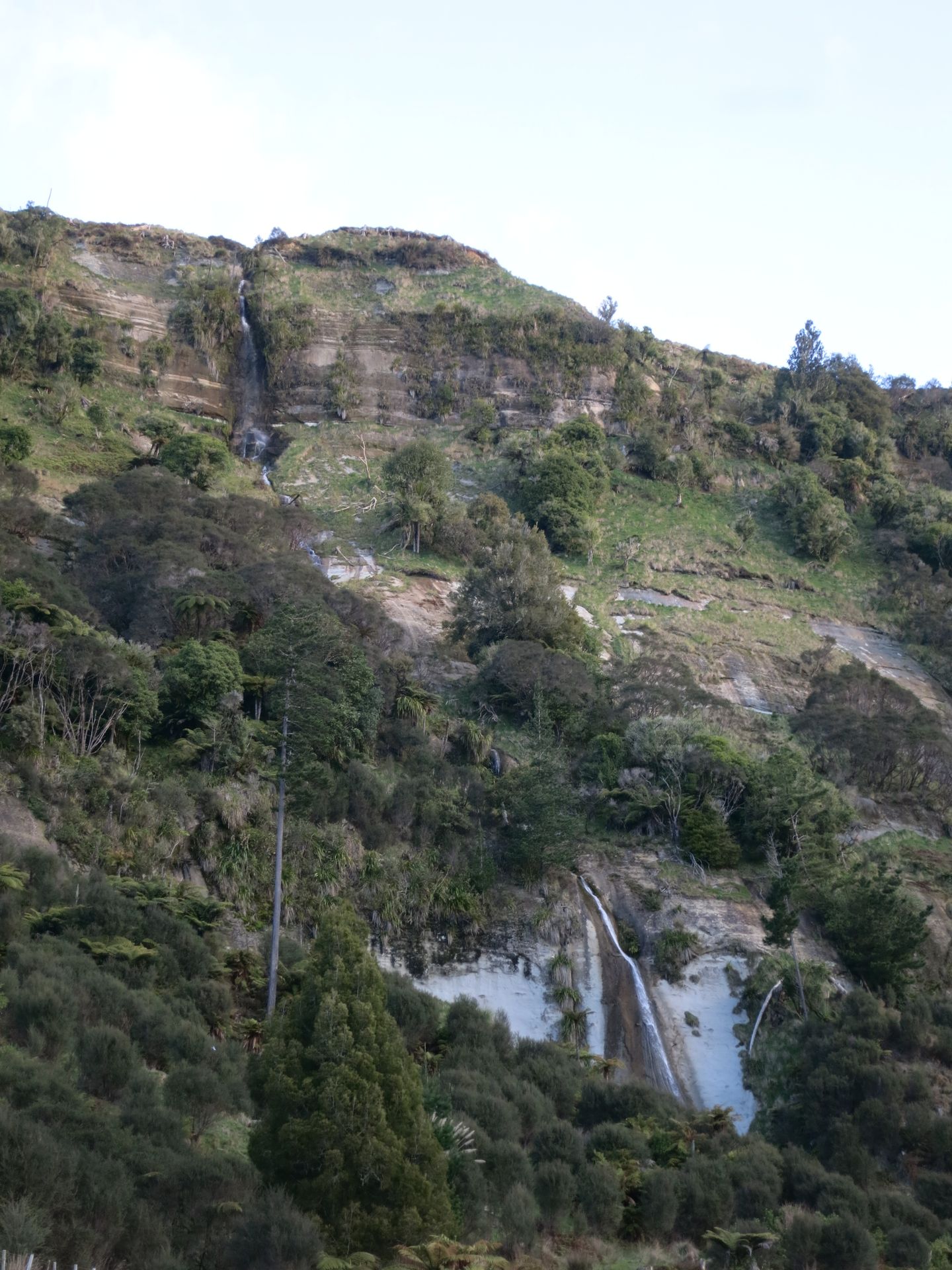

We continued driving, and there it was, the unpaved road. After a few kilometers without a road sign, we were unsure if the road would lead us back to a 'normal highway'. The atlas and the offline map on the phone showed a path, but the darker and more remote it became, the more uneasy we felt. Fortunately, we had our entire home with us, so we would be taken care of in an emergency. In the end, we actually made it back to the North Coast of the Taranaki Peninsula, luckily!
We arrived at the selected campsite in the setting sun, right on an inlet of the sea.
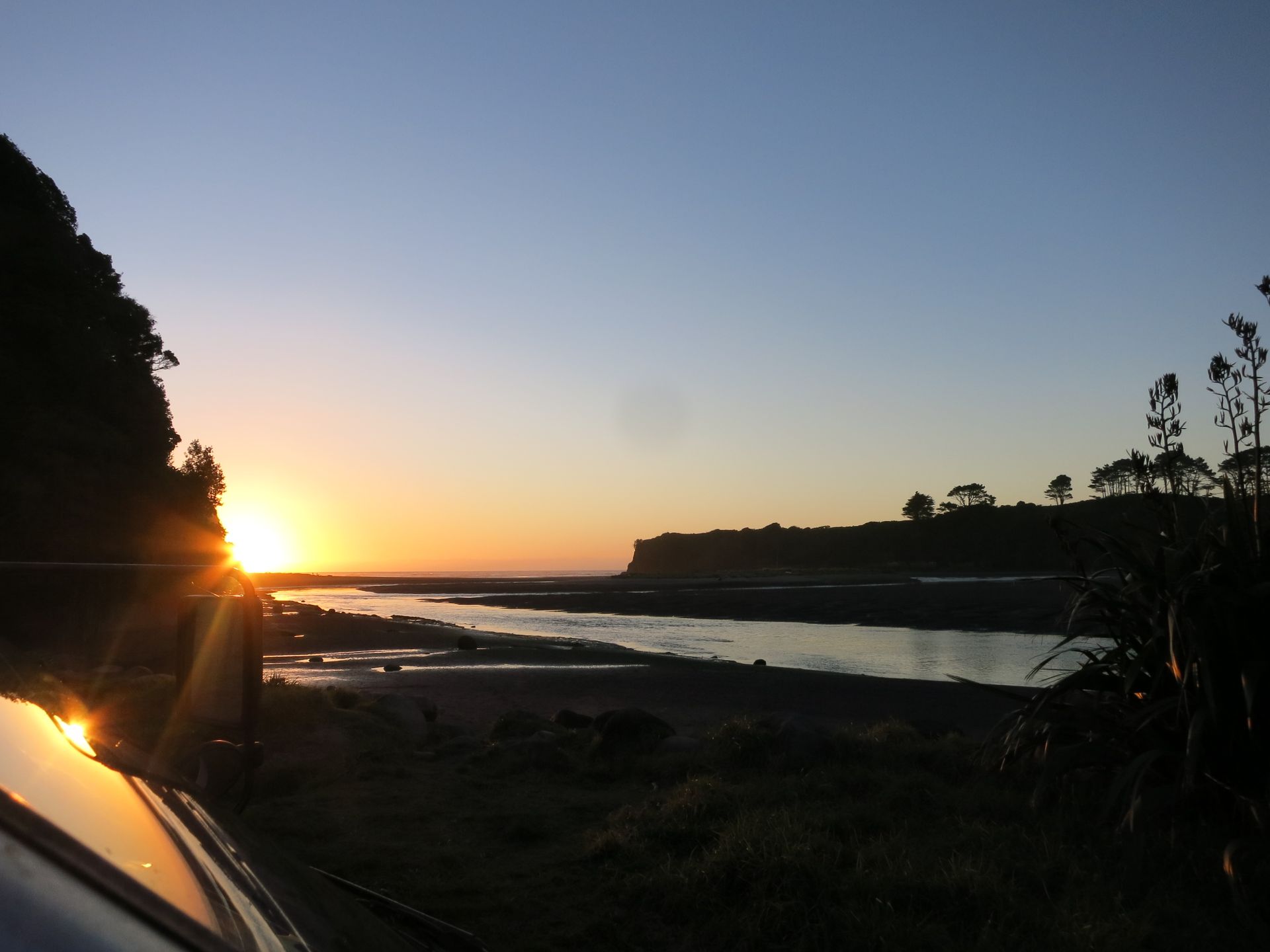
Since it was low tide, we decided to walk along the coast. We went around the corner and there they were, 25-meter high rock formations, also known as the 'Three Sisters'. In the background, we even spotted Mount Taranaki. It seems like he's been showing off since we left the area around the peninsula. In the colors of the setting sun, the formations looked particularly mysterious. There was another rock nearby that looked like an elephant.

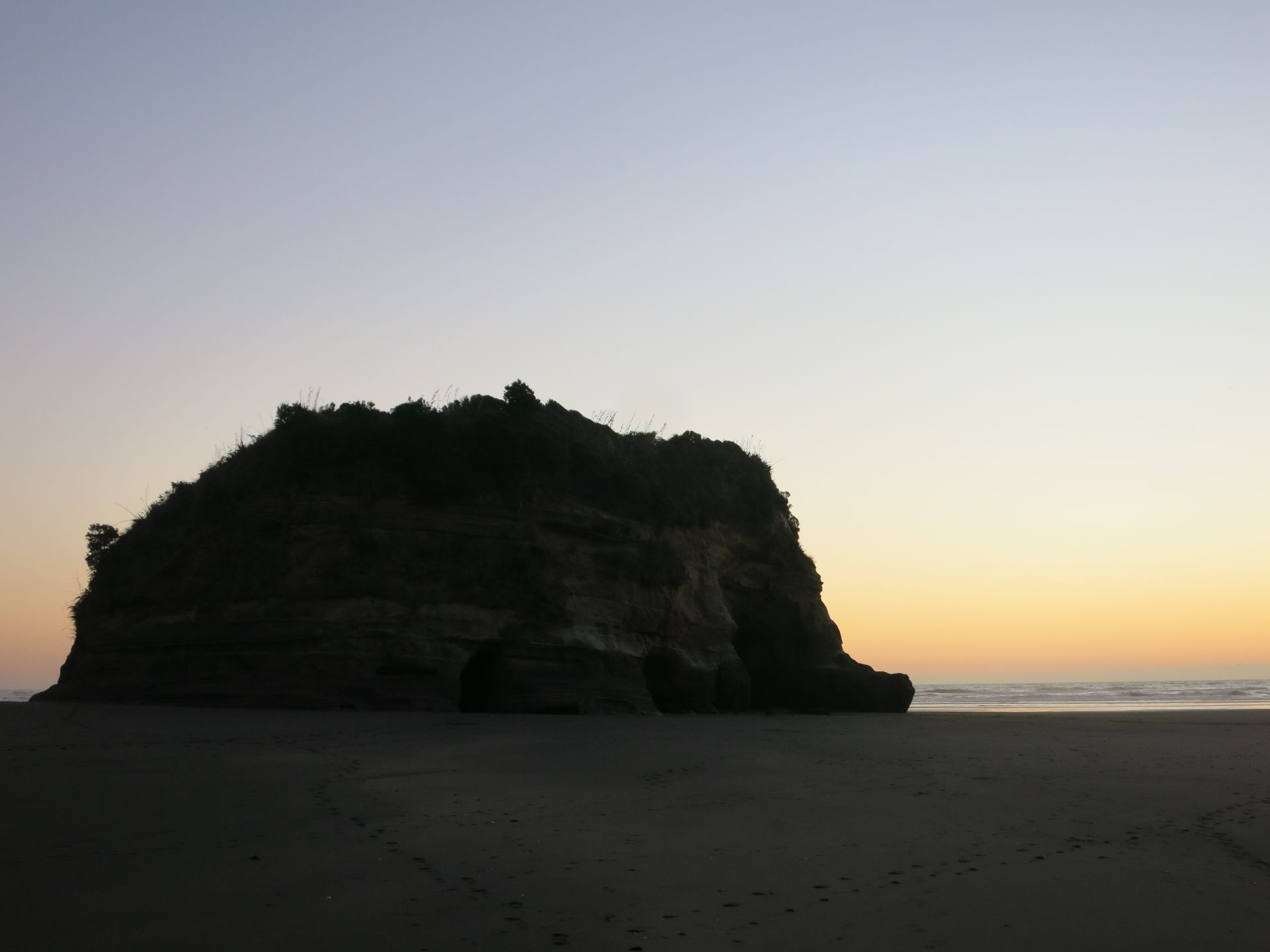
It was getting darker and we slowly realized that the tide was coming back. It happened quite quickly here, and we had to hurry to avoid getting our feet wet.
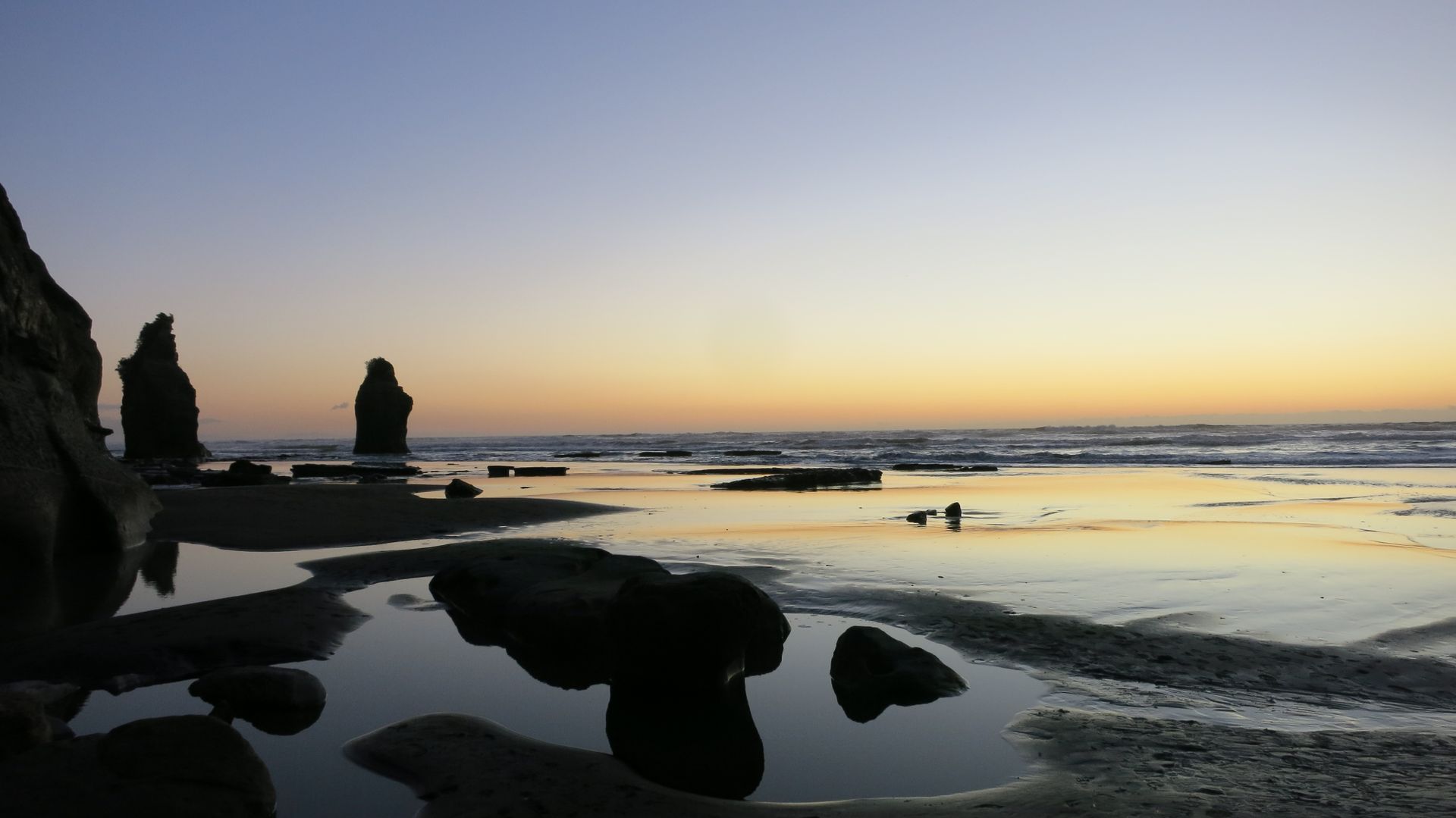
Back at the car, today was probably the first day when we cooked our dinner in complete darkness, armed only with our headlamps. In the winter months, a good schedule is essential for campers!
سەبسکرایبی هەواڵنامە بکەن
وەڵام

ڕاپۆرتی گەشتیاری وڵاتی نیوزلهندا
